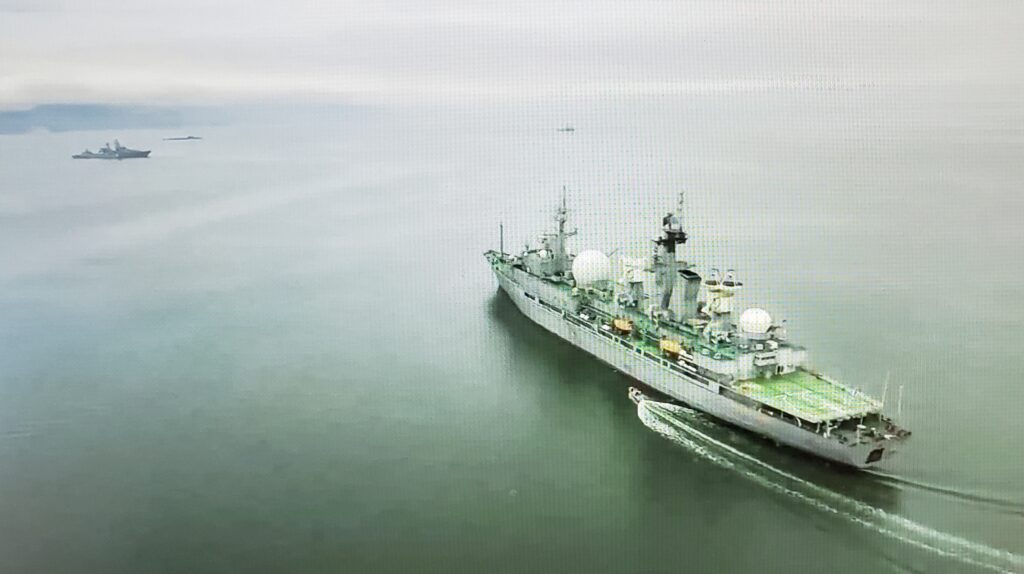
As polar sea ice melts, uncovering trans-Arctic trade routes and unprecedented oil and gas fields, Russia and China are rushing to stake claims. Whether we like it or not, these nations are intent on exploiting Arctic resources, and America is in no position to stop them.
As governor of the only Arctic state in the nation, I’m grateful for all those who serve unselfishly and honorably to keep America’s Arctic safe. It’s time for our lawmakers to catch up and give them the tools they need to defend our nation’s interests.
The threats to the Arctic and our nation cannot be understated. In addition to 26 penetrations of the Alaskan Air Defense Identification Zone by Russian aircraft in 2020, Russian military ships recently ordered U.S.-flagged fishing vessels to leave the U.S. “exclusive economic zone.”
Think about that: U.S.-flagged vessels being forced to leave U.S. waters at the direction of the Russian military.
And as Russia continues to build up its Arctic forces, including ice-hardened warships, MiG-31 fighter jets, brand-new nuclear submarines, and 50 reopened, Soviet-era installations, our own naval presence in the Arctic is limited to operations in the “most favorable of conditions.”
Just last month, three Russian LNG tankers made history by sailing the Northern Sea Route in the dead of winter. As Russia continues to develop extensive LNG infrastructure along its Arctic coastline, these trips will only increase in frequency. Worse, these vessels are entering U.S. waters without the spill plans required of U.S. ships. Without a presence to monitor their transit up and down Alaska’s coastline, who is protecting the Arctic?
China, too, has eyed the Arctic for decades. The emergence of the Chinese “Polar Silk Road” project threatens to bring the same chaos to the Arctic that China has inflicted on the South China Sea. While China’s interests appear to be focused on trade routes and could even complement our own, there is little reason for the Chinese to negotiate when our Arctic presence brings so little to the table.
America must get serious about the Arctic, and with over 30,000 miles of Arctic coastline, that starts with Alaska. As we begin to grow our ice-hardened fleet, those icebreakers should be based in Alaska. We cannot be 2,800 miles away when the United States is being bullied out of U.S. waters by Russian commanders.
And if the U.S. Coast Guard is to do its job, it needs the proper tools. Maintenance of the aging Polar Star, the Coast Guard’s only operational icebreaker, has long been neglected. While at least one new icebreaker is finally on the way, the future of this production line is far from certain. Worse, the only fully funded ship won’t be completed until 2024.
Meanwhile, Russia has added a nuclear-powered ship to its existing fleet of 46 icebreakers and plans to operate 13 heavy-duty icebreakers by 2035. Nine of these icebreakers will be nuclear powered, a concept the U.S. only recently started exploring. Likewise, China has already surpassed the U.S.’s limited capabilities, sending its second icebreaker to the Arctic last year.
Finally, our naval and Coast Guard forces must have access to an Arctic port. For years, lawmakers have debated the merits of building a deep-water port in Nome, Alaska. Located just over 100 miles from the Chukchi Sea, Nome is one of a handful of places in America’s Arctic with sufficient sea depth for this type of port.
Thankfully, the hard work of Alaska’s congressional delegation appears to be paying off with the passage of legislation authorizing the deep-water modifications to the port of Nome. That said, this project is a long way from reality and will require the support of leaders across our nation.
While there’s no doubt America has fallen behind on Arctic policy, there’s still time for us to chart a new future. After all, many of our nation’s greatest achievements came when others had already counted us out. I’m convinced that with a strong commitment to building new icebreakers and an emphasis on basing Arctic forces in Alaska, it’s possible for America once again to have a strong voice on the future of this critical region.
![]()
Mike Dunleavy is governor of Alaska.

